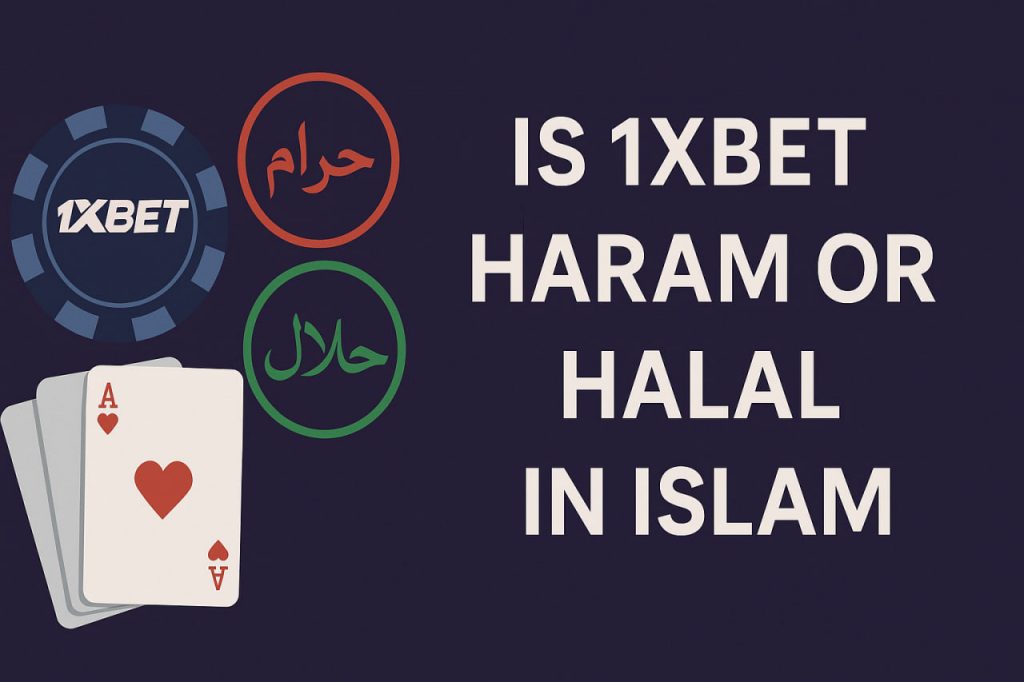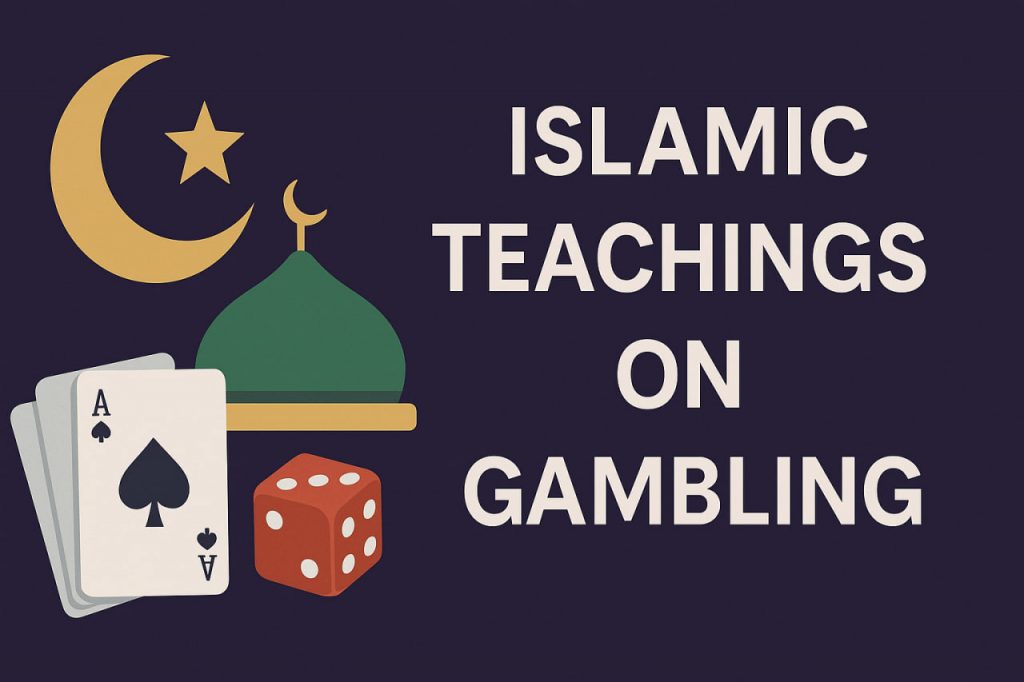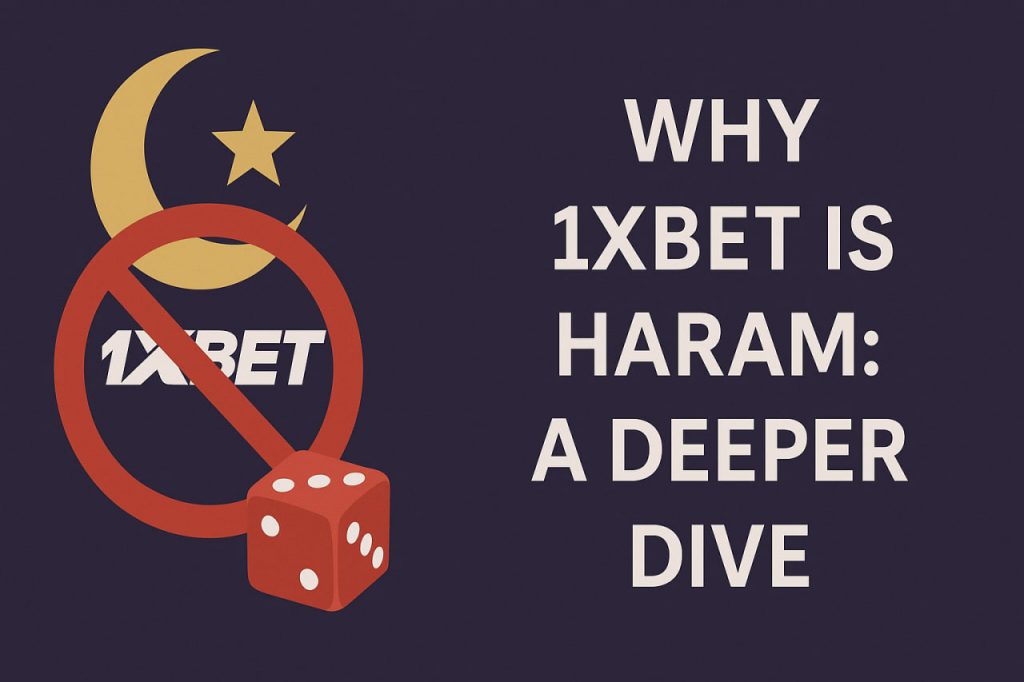Is 1xbet Haram or Halal in Islam?

Online betting platforms like 1xbet have surged in popularity around the world. With cutting-edge design, real-time betting options, and a seemingly limitless selection of games and wagers, they attract millions of users daily. However, for Muslims who are committed to upholding Islamic values in every aspect of their lives, a pressing and fundamental question arises: “Is 1xbet halal or haram in Islam?”
This comprehensive, extensively detailed guide explores the Islamic ruling on gambling, the operational nature of platforms like 1xbet, and the personal and societal impacts of engaging with such platforms. Using Quranic verses, Hadith, scholarly consensus, and ethical analysis, this article aims to provide Muslims with clarity and guidance. Furthermore, we’ll highlight halal alternatives for fun and finance, helping individuals stay aligned with their faith while still enjoying modern entertainment and investment.
In addition, we will delve into historical context, psychological effects, spiritual implications, legal perspectives, and frequently overlooked consequences associated with platforms like 1xbet. This ensures a well-rounded understanding and offers actionable solutions for those seeking a lifestyle aligned with Islamic principles.
What Is 1xbet?
1xbet is a globally renowned online betting platform established in 2007 and headquartered in Cyprus. The company has rapidly scaled up and is now operational in over 50 countries, offering services in dozens of languages. Available via mobile apps and desktop access, 1xbet makes gambling available at the fingertips of anyone with an internet connection.
It provides a wide array of betting and gambling services:
- Sports betting: Users place monetary bets on the outcomes of football, basketball, cricket, tennis, and many other sports, both before and during matches.
- Casino games: Offers games like blackjack, roulette, baccarat, slots, and various poker variations.
- Live dealer games: These simulate a live casino experience with video-streamed human dealers.
- Virtual sports: Simulated games run by software, mimicking real-world sports events.
- eSports betting: Wagering on competitive video games, a rapidly growing segment.
- Special event betting: Includes political events, weather, TV show results, and celebrity news.
- Financial market betting: Allows users to bet on movements in forex or stocks rather than investing.
- Promotions and bonuses: Entice users to keep betting with free spins, deposit matches, and cashback offers.
Behind the glamour and ease of use, however, lies a system built on speculation, chance, and psychological manipulation, drawing people into cycles of addiction and financial instability.
Is Gambling (Maisir) Allowed in Islam?
Islamic Teachings on Gambling
Islam strictly prohibits gambling. The Quran uses the term Maisir, while the Hadith also includes Qimar. Both terms refer to games or transactions based on chance, with participants staking valuables in the hope of winning more. This system creates economic disparity, cultivates greed, and often ruins lives and communities.
Islam seeks to build a society based on fairness, honesty, and mutual benefit. Gambling undermines all three principles by enabling wealth transfer based on luck rather than labor or legitimate commerce.

Key Quranic Verses Regarding Gambling
| Quranic Verse | Interpretation |
|---|---|
| Surah Al-Baqarah (2:219) | “They ask you about wine and gambling. Say, ‘In them is great sin and some benefit for people. But the sin is greater than the benefit.’” |
| Surah Al-Ma’idah (5:90-91) | “O you who believe! Intoxicants, gambling, idols, and divining arrows are abominations of Satan’s handiwork. Avoid them so you may be successful.” |
Relevant Hadith
“Whoever says to his companion, ‘Come let us gamble,’ must give charity.” — Sahih al-Bukhari 4579
The message is explicit and comprehensive. Islam not only forbids gambling but considers it a tool of Satan designed to incite enmity, hatred, and distraction from the remembrance of Allah and prayer. Hence, even the suggestion to gamble is treated as a serious transgression.
Scholars further explain that games of chance distract from productive use of time, disrupt family and community cohesion, and lead to a sense of entitlement over unearned wealth—all detrimental to spiritual and societal health.
How Does 1xbet Work and Why It’s Problematic
To assess whether 1xbet is halal or haram, one must analyze how the platform functions.
Features and Mechanics of 1xbet
- Betting on live events: Odds change in real-time, increasing emotional and impulsive decision-making.
- Casino-style randomness: Results are based entirely on unpredictable outcomes.
- Simulated games: Involve no real skill, just algorithms determining winners.
- Attractive incentives: Bonuses and promotional rewards psychologically hook users into gambling more frequently.
- User addiction: The fast-paced, visually stimulating interface is designed to keep users engaged and gambling continuously.
- Cross-category offerings: Blurs the lines between financial speculation, sports, and entertainment, making it hard to distinguish gambling from other activities.
- High availability: Access is 24/7, increasing exposure and risk of addiction.
These mechanisms create a culture of high risk with zero productivity, which contradicts Islamic principles of ethical earning and balanced living.
Comparing 1xbet Features with Islamic Principles
| 1xbet Feature | Islamic Alignment? | Verdict | Explanation |
| Sports Betting | ❌ Not Aligned | Haram | Based on speculation and monetary risk |
| Casino Games | ❌ Not Aligned | Haram | Involve complete chance and promote addictive habits |
| Virtual Sports | ❌ Not Aligned | Haram | No control over results; pure simulation |
| Live Dealer Games | ❌ Not Aligned | Haram | Encourages glamorization of gambling culture |
| eSports Betting | ❌ Not Aligned | Haram | Adds a gambling layer to otherwise permissible activities |
| Betting Promotions | ❌ Not Aligned | Haram | Increase psychological compulsion to gamble |
| Fantasy Sports (no entry fee) | ✅ Conditionally Aligned | Halal | Acceptable if no money or rewards involved |
| Knowledge Competitions | ✅ Aligned | Halal | Encouraged when based on skill and free of gambling elements |
Why 1xbet Is Haram: A Deeper Dive

There are multiple, layered reasons why Islam declares platforms like 1xbet as haram:
- Violation of Maisir prohibition – Based on speculation and luck.
- Gharar (excessive uncertainty) – High unpredictability that can cause harm.
- Encouragement of greed and materialism – Opposes values of moderation and trust in Allah.
- Promotion of Israf (wastefulness) – Money is spent with little to no real value returned.
- Mental and emotional damage – Depression, anxiety, addiction, and strained relationships.
- Financial destruction – Many users face debt or even criminal consequences due to losses.
- Spiritual harm – Leads to a distance from worship, gratitude, and reliance on Allah.
- Community impact – Promotes unproductive behavior and normalizes vice.
- Unjust earnings – Profit comes from others’ losses with no value creation.
- Defiance of divine command – Engaging in haram despite clear prohibitions is sinful.
- Distortion of priorities – Shifts focus from family, prayer, and productivity to risk and entertainment.
- Lack of accountability – The anonymity of online platforms makes haram actions easier and more frequent.
Halal Alternatives: Entertainment and Wealth the Islamic Way
While gambling is forbidden, Islam offers numerous halal avenues for enjoyment and financial growth:
Halal Entertainment
- Islamic quizzes and games that increase knowledge
- Skill-based competitions with no entry fees
- Outdoor activities like sports, hiking, or team events
- Creative arts: photography, writing, painting
- Reading and media that promote Islamic values
- Group-based storytelling or debates that develop intellect and social bonds
- Volunteering and community involvement for purpose and connection
Halal Financial Growth
- Investing in Shariah-compliant stocks and mutual funds
- Real estate development or leasing using halal contracts
- Micro-financing or halal crowdfunding platforms
- Creating halal e-commerce or service-based businesses
- Partnering in ethical ventures under mudarabah/musharakah principles
- Learning entrepreneurial skills and building value through halal enterprise
These options empower Muslims to engage in meaningful, productive activities that yield barakah (blessings) and community upliftment.
Conclusion
Based on clear Quranic injunctions, Hadith, and scholarly consensus, 1xbet is unquestionably haram. It represents everything Islam warns against: greed, risk-based wealth, distraction from faith, and unjust gain.
Engaging with such platforms, even infrequently, can damage a Muslim’s iman, relationships, and financial stability. Avoiding 1xbet is not just a personal moral choice, but a form of worship and obedience to Allah (SWT).
Final Thoughts: Live Halal, Live Blessed
Making halal choices in how we entertain ourselves and earn money is a profound reflection of our love and reverence for Allah. Although haram platforms like 1xbet offer excitement and illusionary wealth, they come with serious spiritual, emotional, and societal costs.
Instead, explore the vast world of halal alternatives that promote growth, well-being, and lasting joy. Help others see the truth. Share this guide with friends, family, or anyone wondering: “Is 1xbet halal or haram in Islam?”
“Indeed, Allah is Pure and only accepts what is pure.” — Sahih Muslim
Frequently Asked Questions (FAQs)
Yes. It is structured around gambling, which is clearly forbidden in Islam.
Even simulated betting can lead to real addiction and desensitize users to haram practices.
Charity must come from halal income. Money earned through haram means is not purified by donation.
No. Halal competitions involve skill, knowledge, and no monetary risk or unethical stakes.
Only if there is no entry fee, no betting involved, and it is done purely for fun.
Remind them gently. Guide with compassion and provide halal alternatives.
Yes. Gambling addiction is subtle and often begins with curiosity or occasional betting. Prevention is better than cure.
Make sincere repentance (tawbah), cut off access to gambling sites, seek support, and replace the habit with halal alternatives.
